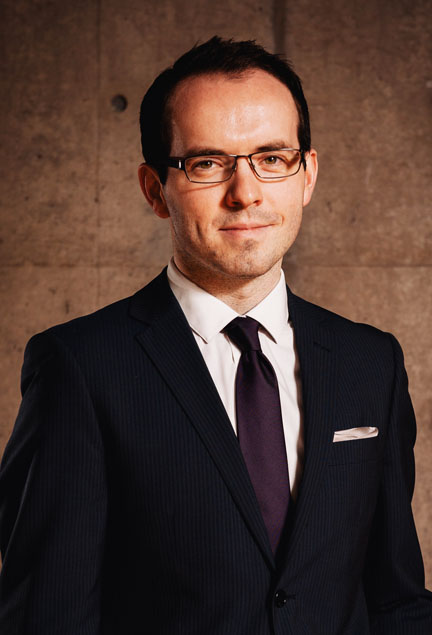Yesterday, leaders of Canada’s LGBTQ law students wrote a letter to British Columbia’s Minister of Advanced Education Amrik Virk asking him to reverse his ministry’s approval of Trinity Western University’s law degrees.
 TWU has been making headlines over a controversial Community Covenant Agreement prohibiting sexual intimacy outside of heterosexual marriage. The agreement discriminates against LGBTQ students, say opponents.
TWU has been making headlines over a controversial Community Covenant Agreement prohibiting sexual intimacy outside of heterosexual marriage. The agreement discriminates against LGBTQ students, say opponents.
In a binding referendum last month, Law Society of British Columbia members voted 74 per cent in favour of a resolution stating TWU is not an approved law faculty for the purpose of the bar admissions requirements in that province. LSBC benchers rescinded TWU’s accreditation on Oct. 31, joining Nova Scotia and Ontario in denying the law school’s graduates access to the provinces’ respective bars.
OUTlaws, a network of LGBTQ and ally students groups across Canadian law schools, say Virk “hastily” approved the TWU degrees in December 2013, the day after the Federation of Law Societies of Canada recommended provincial and territorial members accredit the school. FLSC found there was no evidence of discrimination. Virk approved the program despite an expert panel’s “serious reservations” about TWU’s academic freedom, breadth of world view, ability to teach legal skills, and course quality, a press release from OUTlaws states.
However, in July, Virk wrote to TWU indicating the approval of TWU’s law degrees was conditional upon the law program securing accreditation of B.C.’s law society. As it had failed to do so, OUTlaws request a reversal of Virk’s earlier approval to “align with both his statutory mandate under the Degree Authorization Act and his obligation to support the equality rights of LGBTQ individuals,” says the press release.
“Although it should never have been necessary to do so, your ministry can now rely on the numerous regulators, academics, and legal authorities that have consistently rejected TWU’s position on this issue,” reads the letter to Virk.
“We opened ourselves up to a meeting — we said if you want to meet with any of our members to discuss these concerns in person, we would be happy to attend,” says Douglas Judson, member of Osgoode Hall Law School’s OUTlaws chapter.
“We have expressed that we hope to hear back from him, and we’re hoping by making this a very public, transparent campaign that will motivate action on the part of the ministry.”
Continuing the fight on other fronts, TWU has filed an application for judicial review of the Ontario law society’s decision not to accredit its program, and OUTlaws groups at Osgoode, the University of Toronto, Queen’s University, and the University of Windsor are intervening.
“We are hanging tight waiting for our court dates for that and we look forward to an equality minded resolution of the dispute,” Judson says.
 TWU has been making headlines over a controversial Community Covenant Agreement prohibiting sexual intimacy outside of heterosexual marriage. The agreement discriminates against LGBTQ students, say opponents.
TWU has been making headlines over a controversial Community Covenant Agreement prohibiting sexual intimacy outside of heterosexual marriage. The agreement discriminates against LGBTQ students, say opponents. In a binding referendum last month, Law Society of British Columbia members voted 74 per cent in favour of a resolution stating TWU is not an approved law faculty for the purpose of the bar admissions requirements in that province. LSBC benchers rescinded TWU’s accreditation on Oct. 31, joining Nova Scotia and Ontario in denying the law school’s graduates access to the provinces’ respective bars.
OUTlaws, a network of LGBTQ and ally students groups across Canadian law schools, say Virk “hastily” approved the TWU degrees in December 2013, the day after the Federation of Law Societies of Canada recommended provincial and territorial members accredit the school. FLSC found there was no evidence of discrimination. Virk approved the program despite an expert panel’s “serious reservations” about TWU’s academic freedom, breadth of world view, ability to teach legal skills, and course quality, a press release from OUTlaws states.
However, in July, Virk wrote to TWU indicating the approval of TWU’s law degrees was conditional upon the law program securing accreditation of B.C.’s law society. As it had failed to do so, OUTlaws request a reversal of Virk’s earlier approval to “align with both his statutory mandate under the Degree Authorization Act and his obligation to support the equality rights of LGBTQ individuals,” says the press release.
“Although it should never have been necessary to do so, your ministry can now rely on the numerous regulators, academics, and legal authorities that have consistently rejected TWU’s position on this issue,” reads the letter to Virk.
“We opened ourselves up to a meeting — we said if you want to meet with any of our members to discuss these concerns in person, we would be happy to attend,” says Douglas Judson, member of Osgoode Hall Law School’s OUTlaws chapter.
“We have expressed that we hope to hear back from him, and we’re hoping by making this a very public, transparent campaign that will motivate action on the part of the ministry.”
Continuing the fight on other fronts, TWU has filed an application for judicial review of the Ontario law society’s decision not to accredit its program, and OUTlaws groups at Osgoode, the University of Toronto, Queen’s University, and the University of Windsor are intervening.
“We are hanging tight waiting for our court dates for that and we look forward to an equality minded resolution of the dispute,” Judson says.







